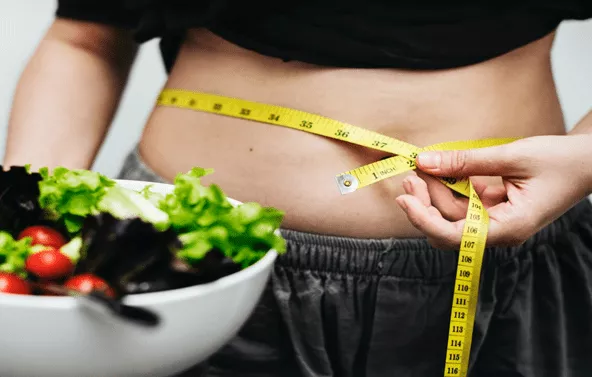Published on: May 23, 2022

People indeed deal with disordered eating at some point in their lives. Perhaps you’re an athlete and have a strict diet or are dieting for months to lose weight. On the other hand, maybe you’re just stressed out and aren’t eating as much as your body needs.
There are many different ways to tell if you or a loved one has an eating disorder. However, if you’re concerned, it’s crucial to get help as soon as possible—the sooner an eating disorder is treated, the more successful treatment will be.
Sometimes it feels like there’s always a new trend in dieting, and it can be hard to know what’s normal and healthy and what a sign of an eating disorder is.
Here are a few red flags to look for that could be a sign you have an eating disorder:
If you find yourself developing rigid rules about when and how often you eat or how much food is acceptable to eat at one time, this is a problem. When your eating habits start to feel like an inflexible chore, it can indicate that you’re struggling with an eating disorder.
You may have heard of orthorexia, which is when someone starts adopting very rigid rules about their diet. For example, saying things like, “I can’t eat that, I only eat organic food,” or “I can only eat this food if I prepare it myself” might be a sign of an unhealthy eating pattern.
It’s not uncommon to gain or lose weight during different times in your life. Still, if it’s happening quickly, especially if you’re trying to lose weight by extreme means (like fasting or taking laxatives), this could also be a sign of an eating disorder. It’s also worth noting that you don’t have to be losing weight or be underweight to have an eating disorder! Sometimes people with eating disorders gain weight because of their disordered eating habits.
Eating disorders can be a way of coping with depression and low self-worth. Unfortunately, many people who have eating disorders will become emotionally withdrawn from friends and family. You’re your own biggest critic and believe that no one could like who you are as a person.
It’s normal to feel uncomfortable if you overeat in one sitting. But if your stomach hurts just from performing usual activities, like walking around or getting dressed, it may signify that something’s wrong. When you’re under-eating regularly, your body isn’t getting the nutrients and energy it needs to function properly—and that can cause pain and discomfort in all kinds of places.
If you’re suddenly all alone with your phone, laptop, or television and aren’t able to connect with other people, you might start thinking about food as a way of distracting yourself from the situation. Unfortunately, this is a common symptom of eating disorders because patients often isolate themselves from friends and family to focus on eating healthy foods rather than junk food.
You might be wondering, “Am I normal?” or “I’m just a little off track right now—I’ll get back on the right path.”
Here’s a quick checklist to help you decide. If your answer is yes to any of these questions, it’s time to seek help.
For more information about Mental Health Conditions. Visit our Mental Health Library page. To understand and cope with your psychological symptoms, get help from our Top 10 Psychiatrists, Psychologists, and Therapists who are known for providing the best mental health treatment and psychiatry services. To book an appointment please call us at (800) 457-4573 or submit an appointment request.
Discover the essence of Harmony United Psychiatric Care through our impactful numbers. Our experienced team is dedicated to fostering mental well-being.
10
+
Years of Experience
With 10 years of unwavering commitment to mental health, we bring a wealth of experience to support our patients on their journey.
About Us58
+
Providers
Our dedicated team comprises 58 skilled therapists', psychiatrists', psychologists', ensuring personalized and expert care for each individual.
Providers13
+
Locations
Across multiple locations, we extend our reach to provide accessible mental health care tailored to diverse communities.
Locations70000
+
Patients Served
Over 70000 patients have entrusted us with their mental well-being, experiencing compassionate care and positive outcomes.
Book AppointmentWelcome to the latest edition of “Discover Harmony,” the newsletter from Harmony United Psychiatric Care! In this edition, we bring you insights, updates, and valuable information to support your mental well-being journey.
Subscribe to newsletter